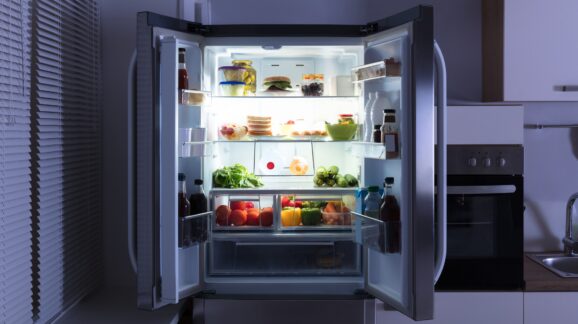Three Cheers for Refrigeration—and Four, Once Everyone Has It
It is difficult to overstate the benefits of refrigeration. Even more than its technological sibling air conditioning, refrigeration has dramatically improved public health and the quality of life wherever it has become widespread. And unlike air conditioning, the utility of which is questioned in some intellectual circles, refrigeration has few if any critics. Nonetheless, in an age when climate change has become the near obsession of most international policymakers—and given that refrigeration does require a considerable amount of (often) fossil-fuel fired electricity—it is worth highlighting the importance of avoiding measures that threaten its continued spread throughout the world.
The Rise of Refrigeration and Fall of Foodborne Illness
In 2013–2014, salmonella-contaminated chicken from Foster Farms in California caused a known 634 illnesses across 29 states. This major outbreak and recall received substantial press coverage at the time, as have similar ones that have happened. But before refrigeration, such incidents would not have been treated as news; they were an everyday reality.
Along with air conditioning, the United States was the first nation to have a refrigerator in most residences, as well as an extensive cold chain among food producers and wholesalers and retailers upstream of the consumer. Therefore, America provides the longest test case of the public health benefits from having a food supply that can be kept cold as needed. Those benefits are impressive.
It is over the last century that American households went from zero to nearly 100 percent in refrigerator use. Indeed, market penetration was already above 80 percent by the 1940s. Thanks to a fridge in every kitchen, and along with other major advances like pasteurization, food-related illness and mortality have seen a precipitous decline.
Even health outcomes not obviously connected to refrigeration have benefited from it. For example, there is considerable evidence that cancers of the stomach became considerably less common in the United States thanks to refrigerators.
Beyond reducing foodborne illness, refrigeration has also improved the quality of the food supply. This is particularly true for protein sources like dairy, meat, and fish that are quickly perishable without it. It has also enabled wider and year-round availability of fresh fruits and vegetables. These fresh (and also fresh frozen, as sizeable freezer sections have become a standard feature in refrigerators) foods have largely replaced heavily salted or smoked or pickled foods, and thus improved diets.
Lower income households have benefited the most from refrigeration. Not only has the cost of a high-quality diet come down, but the once-considerable expense of food spoilage has been reduced. This is particularly important for those who live in hotter regions.
Given all the health benefits of a safer and better food supply attributable to refrigeration, there is little doubt it has contributed to the considerably longer life expectancies in the United States over the past century. Granted, improved health care has been the main driver of these improvements, including vaccines against many once-common diseases. But even with that, refrigeration has played a vital role in the manufacture, transport, and storage of those vaccines as well as in many other medical applications.
Read the full article on Human Progress.
